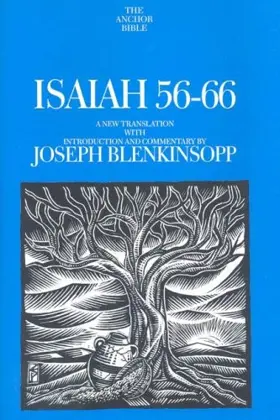

Isaiah 55–66
Pages
368
Publisher
Yale University Press
Published
1/1/2003
ISBN-13
9780300139624
The world’s leading authority on the prophet Isaiah brings his distinguished three-volume commentary on the book of Isaiah to a conclusion with this new translation and critical discussion of the final eleven chapters.
The concluding section of the book of Isaiah, sometimes referred to as Third or Trito Isaiah, had a profound impact on the Christian movement in its formative phase, including such central issues as the identity of the founder, the profile of the disciple, and the Gentile mission. In this thorough and informative commentary, Joseph Blenkinsopp shows that while these chapters maintain continuity with Second Isaiah, they must be considered in the light of a new set of circumstances.
The texts present a community beset by severe problems, attempting to cope with disappointed expectations and trying to maintain its faith in the reality, power, and benevolence of the God of traditional religion. Blenkinsopp discusses in detail the issues that divide the community, from concerns about the efficacy of religious practices (prayer, fasting, Sabbath observance, and sacrifice) to questions about who may claim the name of Israelite and under what conditions, to what kind of relations should be maintained with outsiders. In examining each of these topics, Blenkinsopp shows that they provide evidence of an emerging Judaism seeking its own identity and self-definition and testify to the existence of a prophetic discipleship inspired by the person and teaching of the charismatic servant whose fate is described in the previous section of Isaiah.
Reflecting the same standard of excellence as Blenkinsopp’s first two volumes on Isaiah, this is an important contribution to the prestigious Anchor Bible Commentary series.
The concluding section of the book of Isaiah, sometimes referred to as Third or Trito Isaiah, had a profound impact on the Christian movement in its formative phase, including such central issues as the identity of the founder, the profile of the disciple, and the Gentile mission. In this thorough and informative commentary, Joseph Blenkinsopp shows that while these chapters maintain continuity with Second Isaiah, they must be considered in the light of a new set of circumstances.
The texts present a community beset by severe problems, attempting to cope with disappointed expectations and trying to maintain its faith in the reality, power, and benevolence of the God of traditional religion. Blenkinsopp discusses in detail the issues that divide the community, from concerns about the efficacy of religious practices (prayer, fasting, Sabbath observance, and sacrifice) to questions about who may claim the name of Israelite and under what conditions, to what kind of relations should be maintained with outsiders. In examining each of these topics, Blenkinsopp shows that they provide evidence of an emerging Judaism seeking its own identity and self-definition and testify to the existence of a prophetic discipleship inspired by the person and teaching of the charismatic servant whose fate is described in the previous section of Isaiah.
Reflecting the same standard of excellence as Blenkinsopp’s first two volumes on Isaiah, this is an important contribution to the prestigious Anchor Bible Commentary series.
Collections
This book appears in the following featured collections.
- Commentaries by Roman Catholic Scholars by John Dyer